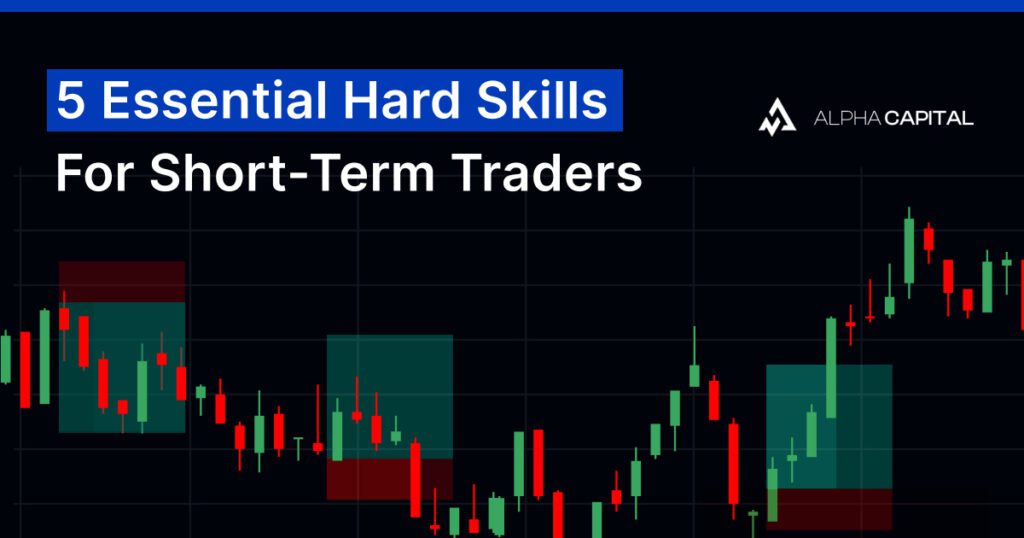
In the fast-paced world of day trading, staying informed and inspired is crucial for success. Podcasts offer a convenient way…

Short-term trading is a demanding field that requires traders to be agile, informed, and strategic. To excel, traders must develop a set of hard skills that enable them to navigate the complexities of the market efficiently. Below are the critical skills that every short-term trader should cultivate:
Understanding Price Patterns and Trends
Technical analysis is the backbone of short-term trading. It involves studying historical price data to identify patterns and trends that can predict future movements. Traders use various tools, such as moving averages, candlestick patterns, and trend lines, to analyze market behavior and make informed decisions.
Utilizing Indicators and Oscillators
Indicators like the Relative Strength Index (RSI), Moving Average Convergence Divergence (MACD), and Bollinger Bands provide insights into market momentum and potential reversal points. Mastery of these tools allows traders to refine their entry and exit strategies, enhancing their ability to capitalize on short-term price movements.
Setting Stop-Loss and Take-Profit Levels
Effective risk management is crucial for preserving capital. Traders must set stop-loss orders to limit potential losses and take-profit levels to secure gains. This disciplined approach helps traders manage their risk exposure and maintain a balanced portfolio.
Position Sizing and Leverage Management
Determining the appropriate position size and managing leverage are vital components of risk management. Traders need to assess their risk tolerance and adjust their position sizes accordingly to avoid overexposure. Proper leverage management ensures that traders can withstand market volatility without jeopardizing their capital.
Processing Information Rapidly
Short-term trading requires the ability to process vast amounts of information quickly. Traders must stay updated on market news, economic indicators, and geopolitical events that could impact market conditions. This skill enables traders to react swiftly to changing market dynamics.
Executing Trades with Precision
In fast-moving markets, the ability to execute trades with precision is essential. Traders must be adept at using their trading platforms to place orders efficiently, ensuring they can capitalize on opportunities as they arise.
Analyzing Liquidity and Volatility
A deep understanding of market dynamics, including liquidity and volatility, is crucial for short-term traders. Liquidity affects the ease of entering and exiting positions, while volatility impacts price fluctuations. Traders must adapt their strategies to these conditions to optimize their trading performance.
Staying Informed on Economic Events
Economic events, such as central bank announcements and employment reports, can significantly influence market movements. Traders need to stay informed about these events and understand their potential impact on the markets to make informed trading decisions.
Customizing Chart Setups
Proficiency in using trading platforms is a must for short-term traders. This includes customizing chart setups to display relevant indicators and timeframes. A well-organized trading platform enhances efficiency and allows traders to focus on analysis and execution.
Leveraging Advanced Features
Advanced features, such as algorithmic trading and automated alerts, can provide a competitive edge. Traders should familiarize themselves with these tools to enhance their trading strategies and improve their overall performance.
Conclusion
Success in short-term trading hinges on the development of essential hard skills. By mastering technical analysis, implementing robust risk management, developing quick decision-making skills, understanding market dynamics, and mastering trading platforms, traders can navigate the markets with confidence. Continuous learning and adaptation are key to refining these skills and achieving long-term trading success.

In the fast-paced world of day trading, staying informed and inspired is crucial for success. Podcasts offer a convenient way…

Embarking on a trading journey can be both exciting and daunting. With a myriad of trading styles and strategies available,…

Gold has long been a favorite among day traders, offering a unique blend of volatility, liquidity, and market dynamics that…

Identifying trend reversals in financial markets is a crucial skill for traders and investors. Recognizing when a trend is losing…
Home About Blog Contact